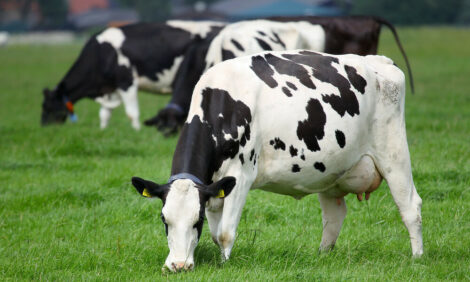



Biobutanol from Dairy Manure
US - A company in Salem, Oregon, Diesel Brewing has launched an initiative to manufacture cellulosic biobutanol from Oregon’s ample supplies of biomass and dairy farm manure.Biobutanol is a 100 per cent 'green' liquid fuel that can be blended into conventional gasoline or diesel stocks without engine modifications.
Compared to corn-based fuel additives, biobutanol has many favourable properties. Bio-butanol burns cleaner, has higher energy content, is substantially less corrosive, and can be transported utilizing existing fuel pipelines and containers.
Butanol is considered 'substantially similar' to gasoline for blending purposes and is certified by the U.S. Environmental Protection Agency as an additive agent up to 11 per cent.
Tests conducted at Argonne National Laboratory have shown that 20 per cent butanol-diesel blends can be successfully used in engines calibrated for 100 per cent diesel fuel. Results showed that butanol mixed with diesel can reduce harmful vehicle emissions.
"Our programme will begin with a demonstration facility built in Salem by the end of 2009 which will process a tonne-a-day of biomass," said Jeff Raines, CEO of Diesel Brewing.
"Next, we will build and operate a semi-commercial plant in Eastern Oregon utilising 10 tonnes per day (TPD) of non food-based waste products.
"Our final phase will consist of installing multiple 100 TPD bio-refineries at selected locations throughout the Northwest."
Oregon annually generates more than 20 million tons of renewable biomass, and produces 2.6 million tonnes of dairy manure each year.
"We don't want to merely make electric power from these waste products," said Mr Raines.
"Instead, we are seeking a more comprehensive solution, one that will produce multiple clean energy products generated from problematic feedstock materials. These products will be produced and consumed in the same community, creating a sustainable energy model."
The Diesel Brewing biomass to liquid fuel technologies is capable of generating more than just biobutanol as a next generation fuel.
Diesel Brewing's cellulosic process starts with a gasifier that transforms wood wastes, agricultural residues and manure into a hydrogen rich mixture.
This synthesis gas is cleaned and fed into a catalytic reactor and purification system to generate a suite of alcohols containing butanol, ethanol and methanol.
"By changing the conversion chemistry, we could produce a number of desirable energy products including biodiesel and Dimethyl Ether (propane) as renewable fuels or Anhydrous Ammonia for the production of fertiliser," Mr Raines said.
"For now, we'll focus on the production of biobutanol." Diesel Brewing has engaged Unitel Technologies based in Mt. Prospect, Illinois, and Dr Kevin Witty, Associate Professor at the Institute of Clean and Secure Energy located in Salt Lake City, Utah as its primary technical program advisors. Pressure vessel and refractory specialists, C H Murphy Clark-Ullman Inc., based in Portland, Oregon, has agreed to work with Diesel Brewing for the fabrication and installation of multiple specialised pressurized vessels.
TheCattleSite News Desk


